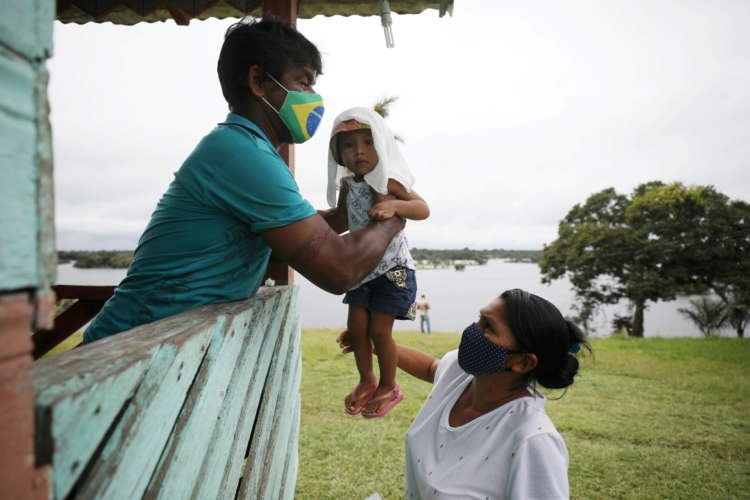Climate extremes seen harming unborn babies in Brazil’s Amazon
Published by linker 5
Posted on March 1, 2021
3 min readLast updated: January 21, 2026

Published by linker 5
Posted on March 1, 2021
3 min readLast updated: January 21, 2026

By Jack Graham
(Thomson Reuters Foundation) – A new study that links extreme rains with lower birth weights in Brazil’s Amazon region underscores the long-term health impacts of weather extremes connected to climate change, researchers said on Monday.
Exceptionally heavy rain and floods during pregnancy were linked to lower birth weight and premature births in Brazil’s northern Amazonas state, according to the researchers from Britain’s Lancaster University and the FIOCRUZ health research institute.
They compared nearly 300,000 births over 11 years with local weather data and found babies born after extreme rainfall were more likely to have low birth weights, which is linked to worse educational, health and even income attainment as adults.
Even non-extreme intense rainfall was linked to a 40% higher chance of a child being low birth-weight, according to the study, published on Monday in the Nature Sustainability journal.
Co-author Luke Parry said heavy rains and flooding could cause increases in infectious diseases like malaria, shortages of food and mental health issues in pregnant women, leading to lower birth weights.
“It’s an example of climate injustice, because these mothers and these communities are very, very far from deforestation frontiers in the Amazon,” Parry told the Thomson Reuters Foundation.
“They’ve contributed very little to climate change but are being hit first and worst,” he added, saying he had been “surprised by just how severe these impacts are”.
Severe flooding on the Amazon river is five times more common than just a few decades ago, according to a 2018 paper in the journal Science Advances.
Last week, Brazilian President Jair Bolsonaro visited the neighbouring state of Acre in the Brazilian rainforest, which is under a state of emergency after heavy flooding.
Parry said local people had adapted their lifestyles to deal with climate change, but that “the extent of the extreme river levels and rainfalls has basically exceeded people’s adaptive capacities”.
The negative impacts were even worse for adolescent and indigenous mothers.
The study said the “long-term political neglect of provincial Amazonia” and “uneven development in Brazil” needed to be addressed to tackle the “double burden” of climate change and health inequalities.
It said policy interventions should include antenatal health coverage and transport for rural teenagers to finish high school, as well as improved early warning systems for floods.
(Reporting by Jack Graham; Editing by Claire Cozens. Please credit the Thomson Reuters Foundation, the charitable arm of Thomson Reuters, that covers the lives of people around the world who struggle to live freely or fairly. Visit http://news.trust.org)
Explore more articles in the Top Stories category











